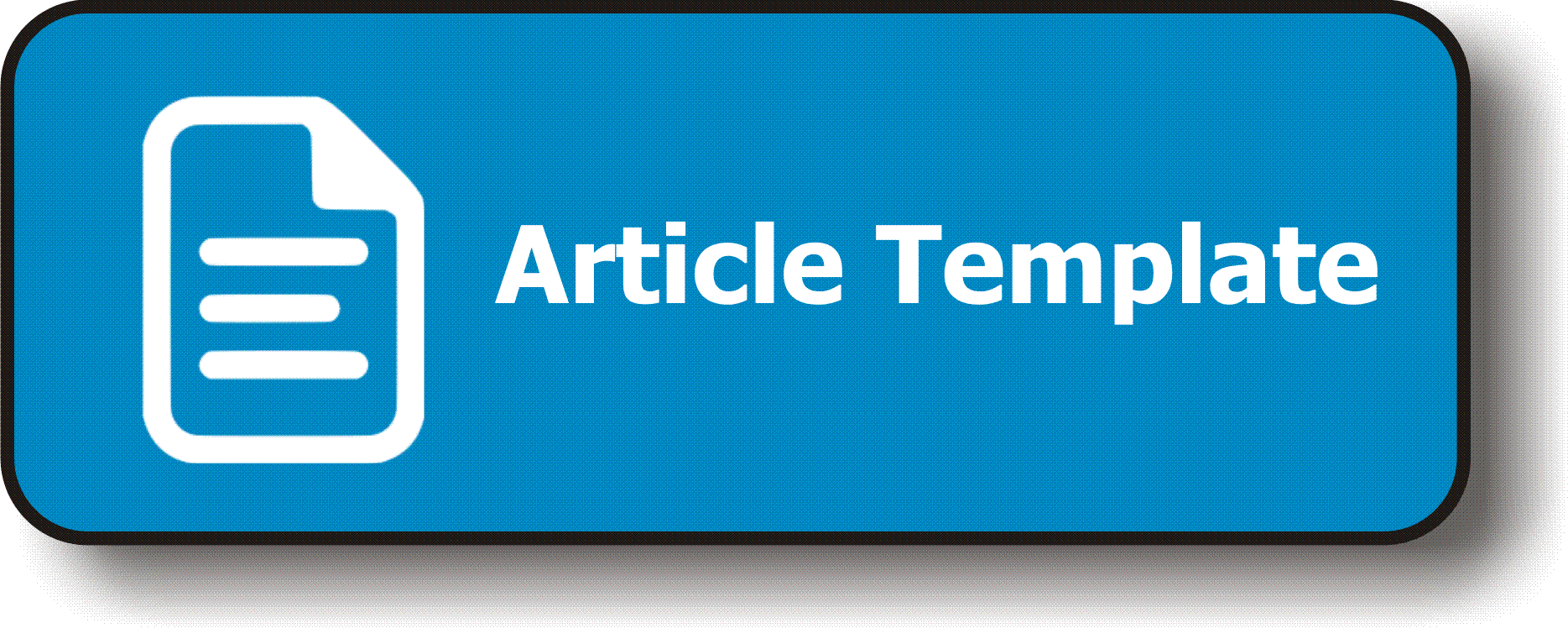INSTRUCTIONAL DESIGN COLLABORATION OF LIBRARIANS IN THE SCHOOL LITERACY MOVEMENT
Abstract
Keywords
Full Text:
PDFReferences
Department of Information Science and Library Management. (2013). Internship Report Submitted to the Department of Information Science and Library Management for the Partial Fulfillment of B. A. (Honours) 8th Semester Examination o f 2 0 1 2 . R e t r i e v e d f r o m http://eprints.rclis.org/28731/1/University_Library_Systems_and_Services.pdf
Fanani, A. (2014). Mengurai Kerancuan I s t i l a h S t r a t e g i d a n M e t o d e Pembelajaran. Retrieved from http://download.portalgaruda.org/article.php?article=299042&val=5943&tit le=Mengurai%20Kerancuan%20Istilah%20Strategi%20dan%20Metode%20Pembelajaran
Kemdikbud. (2016). Desain Induk Gerakan Literasi Sekolah. Retrieved fromhttp://repositori.perpustakaan.kemdikbud.go.id/39/1/Desain-Induk-Gerakan-Literasi-Sekolah.pdf. Dikases pada 19 November 2017. [Online].
Large, J. A. (1987). A Modular Curriculum In Information Studies. Paris: UNESCO.GPI/UNISIST.
Montiel-Overall, Patricia (2005). A Theoretical Understanding of Teacher and Librarian Collaboration (TLC). Retrieved from https://pdfs.semanticscholar.org/e7c7/907d2ef3e7ea7babf67b0d13e4fb2b2f5717.pdf
Muhammad F. (2014). Pelaksanaan Pendidikan Pemustaka pada Perpustakaan Lab School SMA Kornita IPB Bogor. Retrieved from http://repository.uinjkt.ac.id/dspace/bitstream/123456789/29834/3/FARIS%20MU HAMMAD-FAH.pdf
Ophelia Eglene. (2003). Conducting Best and Current Practices Research: A Starter Kit, Center for Technology in Government University at Albany. Retrieved from http://www.ctg.albany.edu
Peraturan Menteri Pendidikan Nasional Republik Indonesia.(2008). Standar Tenaga Perpustakaan Sekolah/ Madrasah. Retrieved from https://zulkarnainidiran.files.wordpress.com/2008/11/permendiknas-no-25-tahun 2008-tentang-standar-tenagaperpustakaan-sekolah-madrasah.pdf [Diakses 10 April 2017]
Powell A. (2017). Apprenticeships Policy in England: 2017. Retrieved from https://fireauthority.dsfire.gov.uk/documents/s1709/Appendix%20A%20to%20Report%20HRMDC1711.pdf
Rachmananta, Dady P. (2006). Pedoman Perpustakaan Sekolah IFLA/UNESCO. Kepala Perpustakaan Nasional RI. Jakarta.
Rahayuningsih, F. (2005). Mengkaji pentingnya pendidikan pengguna. Info Persadha Vol. 3/No.2/Agustus2005.
Rochmawati, Weny. (2012). Perilaku Pemanfaatan Internet. Retrieved from http://journal.unair.ac.i/filerPDF/abstrak_4404136_tpjua.pdf. [Online]. Diakses pada 19 November 2017
Sudarsono, Blasius. (2010). Pengembangan Profesi Pustakawan. Media Pendidikan, Vol 17 (3 dan 4), pp. 47-52. Retrieved from http://dev.perpusnas.go.id/assets/uploads/2016/02/pengembangan-profesi-Soedibyo, Noerhayati. (1987). Pengelolaan Perpustakaan. Bandung: Alumni
Tawaf, M. (n.d.). Pendidikan Pemakai (User Education) dan Pemanfaatan Perpustakaan (Studi Kasus di Perpustakaan UIN Suska Riau). Retrieved from http://ejournal.uin-suska.ac.id/index.php/Anida/article/view/295
Tim Prodi Perpustakaan dan Ilmu Informasi. (2017). Panduan Pelaksanaan Program Pengalaman (PP) Program Studi Perpustakaan dan Ilmu Informasi. Bandung: Prodi Perpustakaan dan Ilmu Informasi FIP-UPI.
Tim Pengembang PPL Prodi Perpusinfo. (2017). Panduan Pelaksanaan Program Pengalaman Lapangan Program Studi Perpustakaan dan Informasi.
Tim Pengembang Kurikulum UPI. (2012). Naskah Akademik Pengembangan Kurikulum UPI 2012.
Trinanda, L. (2015). Pelaksanaan Pendidikan Pemakai di Perpustakaan Universitas Negeri Padang. Retrieved from http://ejournal.unp.ac.id/index.php/iipk/article/viewFile/5141/4038
UNESCO. (2003). Literacy A UNESCO Perspective. Retrieved from http://unesdoc.unesco.org/images/001
/001318/131817eo.pdf
Witriani D. A. (2015). Program Student Librarian dalam Penerapan Pendidikan Pemakai di Perpustakaan Sekolah Cikal Simatupang . Retrieved from http://repository.uinjkt.ac.id/dspace/bitstream/123456789/30314/1/DINI%20AMELIA%20WITRIANI-FAH.pdf
DOI: https://doi.org/10.17509/edulib.v8i1.12063
DOI (PDF): https://doi.org/10.17509/edulib.v8i1.12063.g7274
Refbacks
- There are currently no refbacks.
Copyright (c) 2018 Edulib

This work is licensed under a Creative Commons Attribution-NonCommercial-ShareAlike 4.0 International License.

This work is licensed under a Creative Commons Attribution-ShareAlike 4.0 International License.





